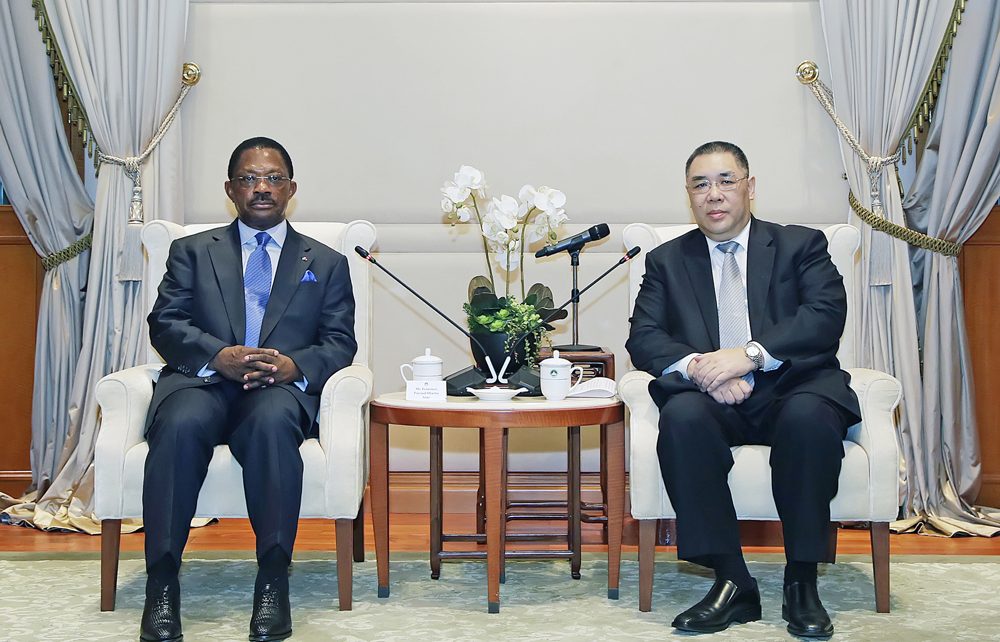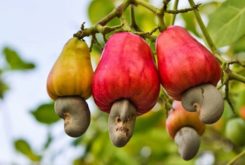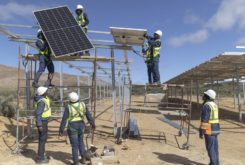In recent months, Equatorial Guinea, an important oil producer in the Gulf of Guinea region has been looking into formally applying for a membership at the Forum Macao. With this new addition, Forum Macao will have all the members of the Community of Portuguese Language Countries (CPLP) under one roof.
Since São Tomé and Príncipe joined the Forum Macao in 2017, Equatorial Guinea has been the only country from CPLP still not a member of the institution. However, sources indicate that their membership status may be confirmed by Forum’s next ministerial conference in 2019.
In the first week of June, the Prime Minister of Equatorial Guinea, Francisco Pascual Obama Asue, officially visited Macao to take part in the 9th International Forum on Investment and Construction of Infrastructures, in which his country was represented for the third straight year as part of an effort to get closer to the Forum Macao.
The agenda of the meeting between Prime Minister Obama Asue and Macao Chief Executive Chui Sai On included issues such as the Belt and Road strategy and Macao’s role in fostering relations between China and the Portuguese-speaking countries.
Equatorial Guinea’s official delegation to Macao included the Minister of Public Works, Housing and Urban Planning, Diosdado Nsue Medja, the Vice President of the National Office for the Planning and Monitoring Project, Alejandro Micha Nsue, its ambassador in China, German Ekua Sima Abaga, and the prime minister’s cabinet chief, Amadeo Nguema Ondo Bindang.
China and Equatorial Guinea have maintained diplomatic relations since 1970. Co-operation between the two countries is mainly in the economic and commercial sectors, and in infrastructure construction, favourably rated by both governments.
This year, the annual infrastructures forum held in Macao highlighted the Belt and Road Initiative, an initiative that already has major infrastructures projects with Chinese and African partners underway. This has spiked the interest of numerous African countries, many of them in need of basic infrastructures.
The two countries’ governments favourably view Macao’s initiative in creating a platform for cooperation, in the context of the One Centre, One Platform strategy, particularly in developing its tourism and cultural sector.
Equatorial Guinea also has its own development plan titled Horizon 2020 that is mainly aimed at building infrastructure. They are trying to identify what elements of it can complement the Belt and Road Initiative.
As part of the strategy to diversify the network of external partners, Equatorial Guinea joined the CPLP in 2014, even though Portuguese is not a spoken language in the country. Equatorial Guinea is now under pressure from countries such as Spain and France to democratise the regime and ensure greater respect for human rights.
The membership process has been marked by tensions, above all with Portugal, which believes that the government has avoided fulfilling some of the mandatory conditions imposed by the membership agreement, namely the abolition of the death penalty.
According to sources, the pressure given by CPLP has further increased Equatorial Guinea’s inclination in joining the Forum Macao. They’ve stated that no such conditions have been imposed by Forum Macao when applying to become a full member.
Over the past years, the government of Equatorial Guinea has heavily invested in infrastructures but has been less attentive to developing sectors such as agriculture, fisheries, or tourism.
On 4 July, the weak telecoms sector officially launched their newly installed fibre-optic connection (Ceiba 2). This project was implemented by Chinese information and communications technology (ICT) company Huawei and was officiated by President Teodoro Obiang. One of the country’s next objectives is to hold national and international meetings to debate the country’s strategic development plan and subsequently update the Horizon 2020 plan.
Committed to attracting investment, the government recently reached an agreement with the International Monetary Fund on a monitoring programme. It has also been studying a set of measures to improve the business environment by creating investment promotion agencies and a one-stop shopping platform for foreign investment in the country supported by the World Bank.
President Obiang’s official visit to China in 2015 marked the opening of a US$2 billion credit line and the launch of projects by at least three major Chinese business groups. These projects came at a time when Equatorial Guinea was struggling with its low price of oil, which is its main export product.
The visit also marked the 45th anniversary of the establishment of diplomatic ties between the two countries. Agreements were signed with Chinese companies to carry out projects in production of electricity and developing industries, essential for achieving the objective of diversifying the economy beyond oil.
Equatorial Guinea’s membership into the Forum Macao was suggested in 2015, before the fifth ministerial summit held in October 2016 but the membership never moved forward.




